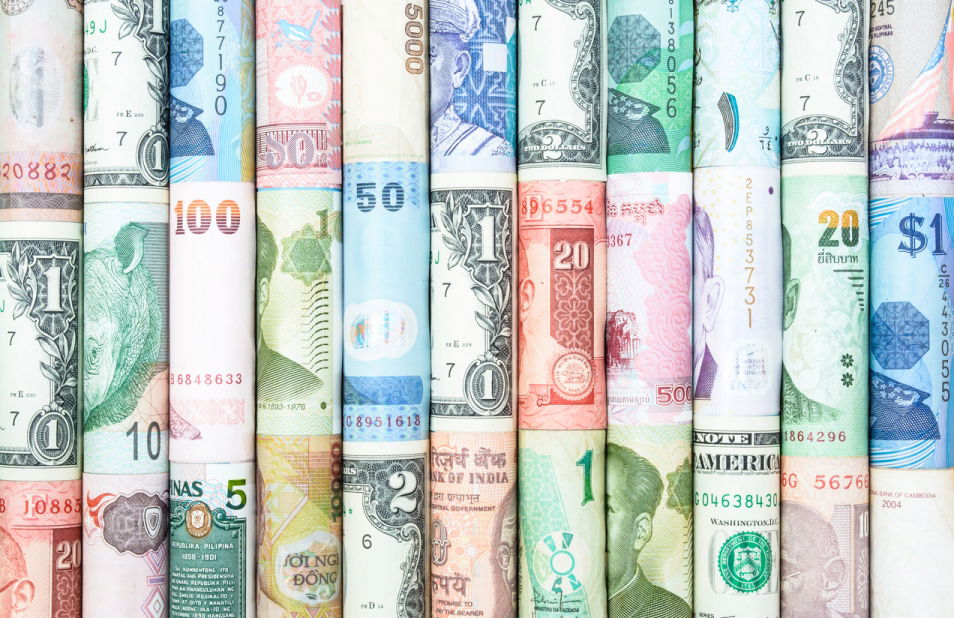If you’re planning an international trip, understanding how to exchange currency is an essential part of your pre-trip preparation. Exchanging currency allows you to have local cash on hand, providing you with the resources you need to cover expenses while abroad.
You could opt to sort out your finances upon arrival, but be warned – using airport or hotel lobby currency exchanges can come with high currency exchange fees.

To keep these costs down, consider converting only a modest amount of cash into the local currency and using a credit or debit card for most of your purchases. However, it’s crucial to verify beforehand that your card doesn’t come with foreign transaction fees, which can add unnecessary costs to your travel budget.
Additionally, it’s wise to notify your financial institution about your travel plans. This precautionary step can prevent your bank or credit union from freezing your card while you’re overseas due to suspected fraudulent activity. Remember to keep in mind that not all destinations readily accept credit cards, so having some local currency on hand is always a good idea.
Where to Exchange Foreign Currency
Choosing the right place to exchange your money can help you save on unnecessary fees and get the most out of your foreign currency exchange. Here are some tips to find the best options.
Before Your Trip: Exchange Currency With Less Hassle
To secure the best currency exchange rates, consider exchanging your money before you leave. Here are some of the most convenient options:
1. Visit Your Local Bank or Credit Union
Most major banks and credit unions provide currency exchange services to their account holders. These services can be accessed either in person or through an online portal. To determine how to proceed, contact your local bank or credit union directly.
Most financial institutions also offer online banking dashboards, which may allow you to order currency directly from your device and pick it up from a local branch. This convenience can save you time, especially if you’re busy preparing for your trip.
In addition, inquire whether your bank or credit union has any partnerships with banks in the foreign country you’re visiting. If such partnerships exist, you may be able to withdraw cash from their ATMs without incurring any fees.
Here’s an overview of the foreign currency services provided by some of the nation’s largest banks and credit unions:
- America First Credit Union: AFCU members can exchange up to $5,000 at select branches. There is a $10 fee for exchanges of more than $300, and a $20 fee for exchanges under $300.
- Bank of America: checking or savings accounts customers can order up to $10,000 in a 30-day period. Online orders placed by 2 pm will be shipped the same business day. But if you’re a Bank of America credit cardholder, you’ll need to visit a branch to place your order. If you’re a Bank of America Preferred Rewards client, you’ll receive a discount off the published exchange rate.
- Citibank: Citibank customers with Citigold or Citi Priority Account Packages can exchange over 50 types of currency without incurring a fee. Those with other accounts will be subject to a $5 service fee for transactions under $1,000. Customers also have the option to have money sent to their home for a fee of $10 to $20, depending on shipping preferences.
- Chase: At local branches, Chase customers can exchange up to $5,000. Please contact your nearest branch to find out about any transaction fees.
- Huntington Bank: Customers of Huntington Bank are able to exchange up to $20,000 in a variety of 75 different currencies for an $8 fee at any of its branches.
- PNC Bank: if you’re a PNC customer, exchanging currency can be done at a local branch. The order will be available within 24 to 48 hours, and there are no transaction fees. PNC doesn’t post foreign exchange rates online, but you can call them for that information.
- State Employees’ Credit Union: If you’re a member of State Employees’ Credit Union, you can exchange foreign currency at one of their branches. However, it’s important to contact customer service before you visit to make sure the type of currency you need is available at your nearest location.
- Truist: Foreign currency orders can be placed at a Truist branch. A foreign transaction fee of $10 applies, and orders are available at the branch within two to three business days. There is also a $200 minimum on all orders.
- TD Bank: you can order foreign currency by visiting a local TD Bank branch. A foreign transaction fee applies, and orders are available for pickup within two business days.
- U.S. Bank: U.S. Bank customers can exchange currency at any local branch. For orders that are $250 or less, there is a $10 transaction fee. No transaction fee applies to orders over $250.
- Wells Fargo: you can purchase foreign currency online using your Wells Fargo checking or savings account. You can also visit a branch or call 1-800-626-9430 to place your order. And if your order is over $1,000, it will ship free of charge.
You may also be able to exchange currency at your local credit union. Contact the branch to inquire to avoid wasting your time.
2. Convert Currency Online
Online currency conversion services like Travelex offer convenience by delivering the cash directly to your doorstep, thus saving you the trip to a bank. However, this method comes with its own downsides. Not only is there typically a service fee, but you may also face shipping charges and possibly unfavorable exchange rates, reducing the value of your U.S. dollars.
3. Foreign Exchange Stores
While foreign exchange stores can be a quick solution to your currency needs, they are typically not the best place to exchange foreign currency. These stores often have high service fees since that’s their primary source of income. Use them only as a last resort if other options like banks or online currency exchange services aren’t available or convenient.
During Your Trip
During Your Trip: Managing Currency Exchange On-The-Go
If you weren’t able to obtain the necessary foreign currency before leaving, it’s not the end of the world. However, be prepared to pay a bit more due to higher currency exchange fees.
1. ATMs
ATMs can be a convenient way to get local currency during your trip. If you’re visiting a popular destination, you might find an ATM from your local bank. This find could be a golden opportunity to get the local currency at a low to non-existent exchange fee. Even if your bank isn’t present, they may have connections with a foreign bank that allows you to withdraw cash without hefty fees.
When searching for nearby ATMs, be aware of possible ATM fees. You can use your bank’s mobile app to locate nearby ATMs for added convenience. Some institutions like Schwab Bank don’t charge foreign transaction fees for debit card use and offer unlimited foreign ATM fee reimbursements. Although the upfront costs might be high, this could be the best solution when traveling abroad since you’ll be reimbursed at the end of the month.
Remember to use only debit cards at foreign ATMs. Using a credit card can lead to costly cash advance fees and interest charges.
See also: Best Banks for International Travel of 2024
2. Hotels
Exchanging currency at your hotel may seem like a safe and convenient option, but be aware that this convenience often comes at a cost. Hotels often charge high fees and offer less-than-favorable exchange rates, making this an expensive choice for currency exchange.
3. Airport Kiosks
Airport kiosks might seem like an easy solution, but be prepared to pay for convenience. These locations often charge high fees and offer poor currency exchange rates. Just as with most items at an airport, the convenience often comes with inflated prices, so it’s the same story when you need to exchange currency.
After Your Trip: Handling Leftover Foreign Currency
Upon returning from your trip, you might find yourself with some leftover foreign currency. Unless you wish to keep it as a memento, here are a couple of options:
1. Exchange Foreign Currency at Your Bank
Most banks will buy back foreign currency from consumers. This service is a straightforward way to exchange that unwanted cash back into your local currency. However, remember to check with your bank about any fees or restrictions that may apply to such transactions.
2. Swap Currency at the Airport
If you’re pressed for time and need to exchange your leftover foreign currency, consider visiting a kiosk at your local airport. While not the most cost-effective solution, this option can help you quickly convert your excess foreign cash before you pass through security.
Bottom Line
Purchasing foreign currency may incur some costs, but with careful planning, you can minimize these expenses. Use a credit or debit card when possible to avoid high currency exchange fees and enjoy more favorable exchange rates. But remember to check with your bank or credit union before your trip to avoid foreign transaction fees and ensure the widespread acceptance of your card in the country you’re visiting.
Furthermore, consider leveraging the power of international banking apps. These apps often allow you to hold multiple currencies in one account, transfer money internationally, and enjoy competitive exchange rates. Some even offer the possibility to withdraw cash from foreign ATMs without incurring extra fees.
By planning ahead, you can avoid the need to exchange large amounts of money at once, reducing your exposure to high currency exchange fees. When you return from your trip, you’ll likely have less foreign currency left to worry about, further simplifying your post-vacation tasks.
Remember, every penny counts when traveling abroad. Prior research and careful planning can help you enjoy your trip without worrying about exorbitant fees and unfavorable exchange rates. Safe travels!




